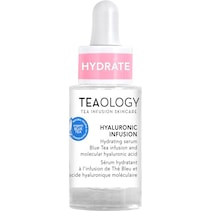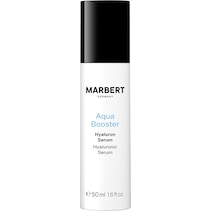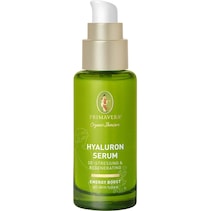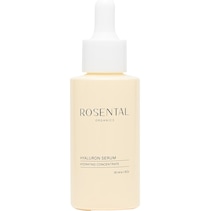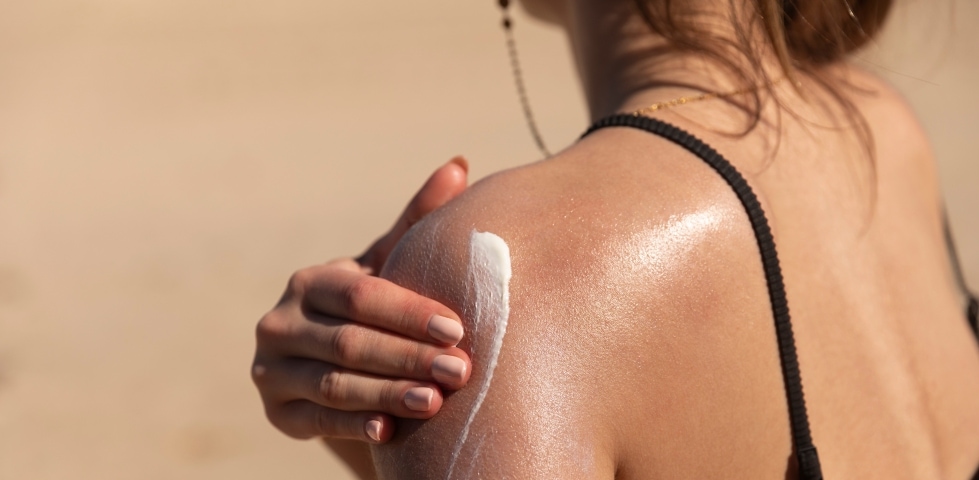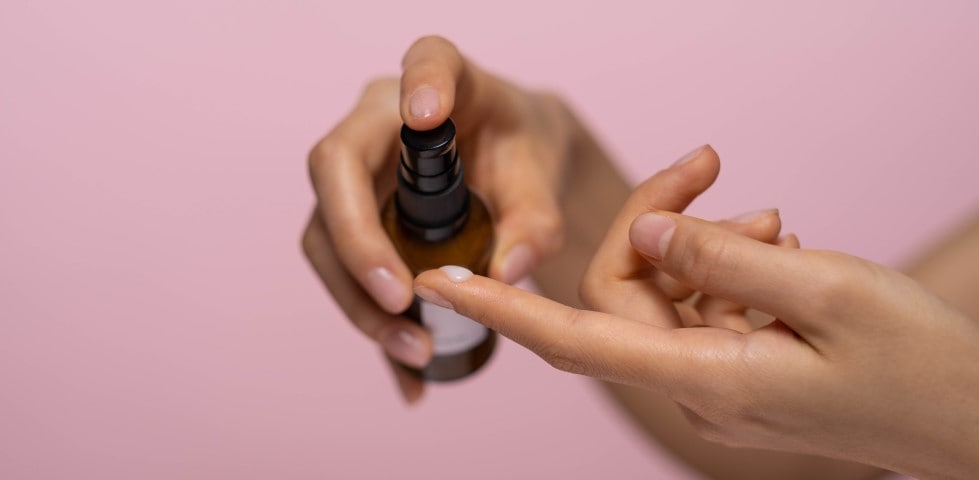
Hyaluronic acid – the moisturising miracle under the magnifying glass
Studies have long since shown: skincare with hyaluronic acid can visibly reduce wrinkles. The reason for this is its ability to bind large quantities of water. This increases the skin’s resilience and fine lines seem to smooth out by themselves. But is every product with hyaluronic acid equally effective? You can read about this and other facts about the number 1 moisture booster in this article.
20 October 2023 • 3 min. reading time
Table of contents
Products with hyaluronic acid
Products with hyaluronic acid
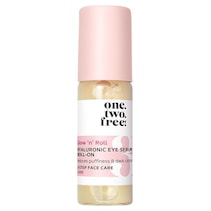
One.two.free!
Eye care
Skin care
Hyaluronic Eye Serum Roll-On

15.95 € 14.36 €
- 12.44 €
- 11.20 €
- 15.95 €
- 14.36 €
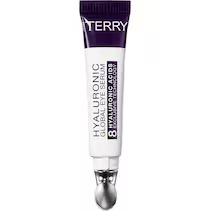
By Terry
Eye & lip care
Skin care
Hyaluronic Global Eye Serum

48.95 € 44.06 €
- 38.18 €
- 34.36 €
- 48.95 €
- 44.06 €
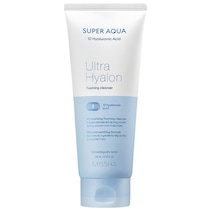
MISSHA
Cleaning
Facial care
Ultra Hyalon Foaming Cleanser
Super Aqua

14.95 € 13.46 €
- 11.66 €
- 10.49 €
- 14.95 €
- 13.46 €
What is hyaluronic acid?
Hyaluronic acid is produced naturally in the body. From a chemical standpoint, it is a chain of sugar molecules with an amazing property: it attracts water magnetically and holds onto it. A single gram of this active ingredient can bind up to 6 litres of water. Amongst other things, it creates a natural lubricant for our joints in the body. In cosmetic products, hyaluronic acid provides sustainable moisture penetration of skin and hair. On the INCI list, you will find this substance under the scientific name sodium hyaluronate or hyaluronic acid.
Wondering whether you can tolerate this ingredient? The good news is: Although its name makes it sound like a potential irritant, there is only a small risk of hyaluronic acid causing allergies and irritation. This is because the substance occurs naturally in our bodies.
Size matters: Which hyaluronic acid works particularly well
Face care with hyaluronic acid that supplies moisture, plumps the skin and can therefore reduce fine lines has been a trend on the beauty scene for a long time. But only very few people know the reason for the hyaluronic acid effect. Because it not only depends on the concentration but also on the length of the hyaluronic acid chains and thus the size of the individual molecules. There are three different types of hyaluronic acid:
High molecular weight/long chain hyaluronic acid: The molecules are large and are therefore unable to penetrate deep into the skin. They just form a smooth film on the skin, which makes it look plumped up. So this instant effect only lasts for a short time. There is no long-term effect, just a short-term one. A film forms on the skin without penetrating deep down. But this form of hyaluronic acid has anti-inflammatory properties.
Low molecular weight/short-chain hyaluronic acid: The molecules are smaller and can penetrate the skin’s middle layers. This also enables a long-term effect.
Oligo hyaluronic acid: This is the smallest form of hyaluronic acid. It can penetrate especially deep into the skin and develop its long-term effect. This form is particularly effective in anti-ageing skincare.
Unfortunately, all three types of hyaluronic acid are identified in the same way on the list of ingredients. For more precise information, you should contact the manufacturer of the product. In addition, the price is also an important indicator of quality. As oligo hyaluronic acid is expensive to manufacture, you will not find it in cheaper products.
The ideal concentration of hyaluronic acid
As a rule, a concentration of 1% hyaluronic acid is entirely sufficient for short chain or oligo hyaluronic acid. If the content is higher, the product tends to be sticky and feels unpleasant on the skin. Incidentally, the same also happens with the much-praised “instant effect”, especially with high molecular weight hyaluronic acid. Instead of penetrating the skin, the hyaluronic acid lies like a water-retaining film on fine lines and makes them disappear in the short term.
The skin is indeed protected from external influences but the effect of the hyaluronic acid will vanish as soon as you wash your face. A mixture of various forms of hyaluronic acid is therefore best: The larger molecules make the skin look plumper through the instant effect and the small molecules work in the long term.
Hyaluronic acid: so versatile
No wonder this active ingredient is so popular. Because along with its quality as a water magnet and moisture-booster, hyaluronic acid also has anti-inflammatory potential. In addition, it can protect the skin cells from free radicals and support their growth. Hyaluronic acid also contributes positively to normal wound healing.
Collagen is frequently mentioned in connection with hyaluronic acid. You should be aware of the small but important difference between the two substances. Collagen is also produced in the body. Whereas hyaluronic acid primarily provides elasticity, collagen, as a structural protein, firms the skin. Together, both active substances combine their potential and form a virtually unbeatable duo.
How to use hyaluronic acid in skincare
It's not hard to introduce hyaluronic acid to your routine because it is a popular ingredient in numerous skincare products. Hyaluronic acid is frequently found in both face serums and in face creams or moisturising masks. This is because it’s not only well tolerated but also combines wonderfully with other active ingredients.
A face serum with hyaluronic acid is a wonderful enhancement to any skincare routine. You simply apply the serum on cleansed skin and then apply your usual face cream and facial oil, if required. Always take care to use watery textures first and finish with a creamy or oily texture. In this way you ensure that the valuable ingredients in your serum are locked into the skin, where they can take effect.
Should you use hyaluronic acid in the morning or in the evening?
Hyaluronic acid is an active ingredient that can be used both in the morning and in the evening. It does not irritate the skin and does not make it sensitive to the sun. This makes hyaluronic acid the perfect companion for day and night. In the morning, it provides a smooth base under make-up and at night it helps the skin to regenerate.
Serums with hyaluronic acid
Serums with hyaluronic acid

One.two.free!
Eye care
Skin care
Hyaluronic Eye Serum Roll-On

15.95 € 14.36 €
- 12.44 €
- 11.20 €
- 15.95 €
- 14.36 €
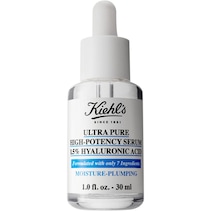
Kiehl's
Seren
Facial care
Ultra Pure High-Potency Serum 1,5% Hyaluronic Acid

36.95 € 33.26 €
- 28.82 €
- 25.94 €
- 36.95 €
- 33.26 €
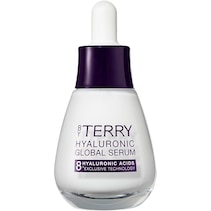
By Terry
Serums
Skin care
Hyaluronic Global Serum

97.95 € 88.16 €
- 76.40 €
- 68.76 €
- 97.95 €
- 88.16 €

By Terry
Eye & lip care
Skin care
Hyaluronic Global Eye Serum

58.95 € 53.06 €
- 45.98 €
- 41.38 €
- 58.95 €
- 53.06 €
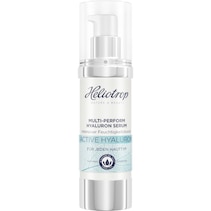
Heliotrop
Active Hyaluron
Facial care
Multi-Perform Hyaluron Serum

35.95 € 32.36 €
- 28.04 €
- 25.24 €
- 35.95 €
- 32.36 €
Takeaway
No wonder hyaluronic acid has become a must-have skincare ingredient. The active ingredient can be used in many skincare products and combined with other active ingredients. Numerous studies have already confirmed the plumping effect. It is important to opt for realistic concentrations and to pay attention to the molecule size. This will help you avoid empty promises and find your new favourite products. However, as always, you should use the active ingredient regularly and over the long term to achieve the best results.


